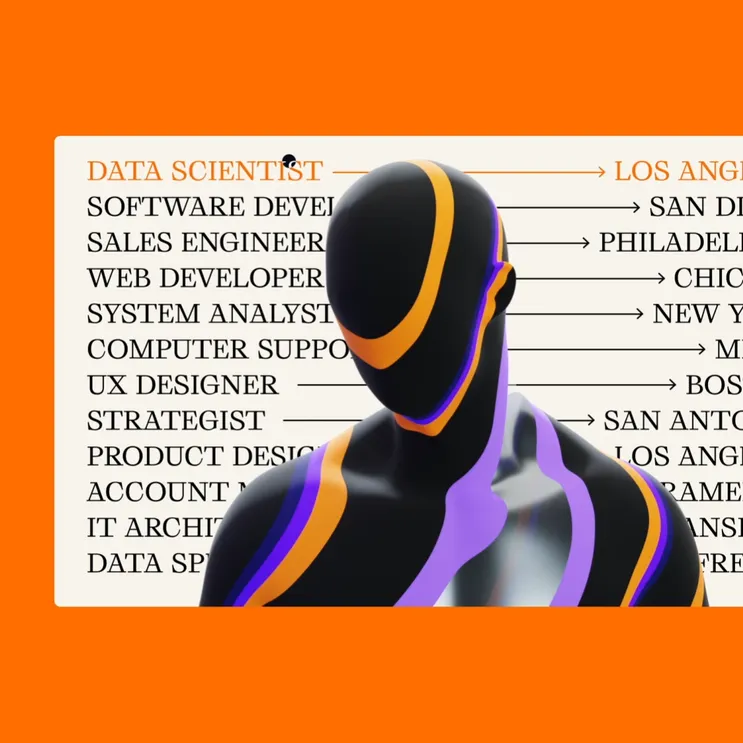Branding
10 min read
Why Personal Branding is No Longer Optional for Business Growth
The world has changed. Consumers and businesses no longer trust faceless corporations the way they used to.
In an era where AI-generated content is everywhere and attention spans are shrinking, people are drawn to real voices, authentic leadership, and human connection.
Think about the brands you admire most. Chances are, there’s a personality behind them - a founder, CEO, or spokesperson who embodies the brand’s values and story. Whether you’re selling software to enterprises, beauty products to consumers, or consulting services to executives, personal branding is your unfair advantage.
Companies that attach a strong personal brand to their business grow faster, attract better clients, and command higher pricing. It’s not a theory - it’s backed by real-world success stories and data.
1. How Personal Branding Builds Trust (And Why Trust Sells Faster Than Any Ad)
Trust is the currency of modern business. Whether you’re in B2B, B2C, or direct-to-consumer (DTC), your ability to stand out depends on credibility, expertise, and relatability - and these things don’t come from a logo or a tagline.
According to Edelman’s Trust Barometer, a staggering 92% of people trust recommendations from individuals over brands. This is why content from real people consistently outperforms corporate messaging.
Take Steven Bartlett, for example. He built Social Chain, a marketing agency, into a $300 million business, not because of its logo, but because of his transparency, insights, and personal storytelling. Today, his podcast, The Diary of a CEO, brings him millions of listeners and positions him as an industry thought leader. When you create a personal brand, your audience gets to know you, like you, and trust you. And trust lowers resistance to buying. It’s why some companies struggle with conversions, while others build communities that buy from them repeatedly - no hard sell needed.
2. The Secret Growth Formula: Personal Branding in B2B, B2C, and DTC
B2B: Why Founders and CEOs Need Personal Brands
In the world of B2B, decision-making is complex. People don’t just choose products or services - they choose people they trust.
- Investors back founders, not just businesses.
- Customers buy from experts, not sales pages.
- Employees join companies with inspiring leaders, not generic missions.
This is why Paul Graham (Y Combinator), Jason Fried (Basecamp), and Dharmesh Shah (HubSpot) are widely recognized beyond their companies. Their personal brands drive credibility, inbound leads, and investor confidence.
When Ben Francis, founder of Gymshark, started sharing his journey from running the company out of his garage to building a $1.5 billion fitness empire, it resonated deeply with his audience. Today, Gymshark isn’t just a fitness brand - it’s his story made tangible.
Impact: His personal brand made Gymshark feel authentic, aspirational, and relatable, helping it scale globally without relying solely on paid ads.
B2C: How Personal Branding Turns Customers into Die-Hard Fans
In consumer businesses, the biggest challenge is cutting through the noise. Products are everywhere, competition is intense, and customers have more choices than ever.
Enter Trinny Woodall, the founder of Trinny London. She didn’t launch her beauty brand by spending millions on ads. Instead, she built a deeply personal connection with her audience through social media.
- She showed up daily on Instagram & YouTube, demonstrating products and giving styling advice.
- She positioned herself as an expert, which made people trust her recommendations.
- She created a brand that felt personal, not corporate.
The result? £80 million in annual revenue and an audience that not only buys but advocates for her brand.
Impact: When customers feel like they know the founder, they don’t just buy the product—they buy into the mission.
DTC & E-Commerce: Lowering Acquisition Costs with a Face Behind the Brand
One of the biggest challenges in direct-to-consumer (DTC) businesses is that customer acquisition costs (CAC) are rising. Ads are more expensive, competition is fierce, and consumers are skeptical. But brands that leverage founder-driven content consistently outperform those that rely solely on paid ads.
- Glossier grew from a beauty blog (Into the Gloss) into a $1 billion brand because its founder, Emily Weiss, built a trusted personal voice in the beauty industry before launching her products.
- Sara Blakely, founder of Spanx, turned her brand into a household name by being open about her struggles as an entrepreneur and her journey to success.
Impact: A strong personal brand reduces ad spend and increases organic reach, making it easier to scale.
3. The Business Case: The Numbers Behind Personal Branding’s Impact
If you’re still wondering whether personal branding is worth the effort, let’s look at hard data:
- Content posted by employees and founders generates 8x more engagement than brand accounts (LinkedIn).
- B2B decision-makers are 50% more likely to engage with a company if its leadership is active online (Edelman).
- Influencer-led brands grow 2-5x faster than those without a personal connection (Harvard Business Review).
If you’re not building a personal brand, you’re paying more for every customer acquisition, struggling with differentiation, and missing out on organic growth.
4. How to Build a Personal Brand That Fuels Business Growth
If you’re ready to start leveraging your personal brand, here's a practical guide how to start. We also recommend listening to this insightful podcast with personal branding expert, Amelia Sordell.
Step 1: Define Your Positioning & Unique Voice
A strong personal brand isn’t just about visibility - it’s about what you stand for. Before you start creating content, define:
- Your Core Expertise – What’s your industry or niche? What do you want to be known for?
- Your Unique Perspective – Why should people follow you instead of someone else? What insights or experiences set you apart?
- Your Audience – Who are you speaking to? What are their biggest challenges and interests?
Pro Tip: Study how successful founders, CEOs, and thought leaders in your space position themselves. Podcasts like The Diary of a CEO by Steven Bartlett, Acquired, or My First Million often break down how personal brands influence business success.
Step 2: Choose a Platform & Show Up Consistently
One of the biggest mistakes people make is starting strong and then disappearing. The reality? Personal branding compounds over time. The more consistently you show up, the more trust you build.
- LinkedIn – Best for B2B thought leadership & credibility.
- Instagram & TikTok – Best for B2C, lifestyle brands & high-engagement content.
- YouTube & Podcasts – Best for deep authority-building & long-form storytelling.
Don’t try to be everywhere at once - pick one or two platforms and stay consistent. Even one strong post per week can build momentum.
Pro Tip: Many top personal brands work with agencies or ghostwriters to maintain consistency and polish their content. If you’re serious about leveraging your personal brand for business growth, outsourcing can help you stay focused on high-impact activities.
Step 3: Share Insights, Not Just Promotions
No one wants to follow someone who only talks about themselves or their business. The best personal brands share:
- Lessons from their journey – What mistakes, challenges, or wins shaped your expertise?
- Industry trends & insights – What do you see happening in your field that others don’t?
- Behind-the-scenes content – What does running your business actually look like?
The goal is to educate, inspire, and engage, not just sell.
Pro Tip: Listen to industry podcasts, read thought leadership articles, and stay updated on trends. The best personal brands are also the best learners.
Step 4: Engage & Build a Community (Not Just an Audience)
The difference between an audience and a community is engagement. Posting content is great, but real influence comes from conversations.
- Respond to comments and DMs – Show people you’re accessible.
- Join industry discussions – Comment on relevant posts, offer insights, and build connections.
- Collaborate with others – Appear on podcasts, do joint posts, or engage with influencers in your space.
Pro Tip: If you don’t have time to manage your personal brand engagement daily, agencies specialise in audience-building, content strategy, and brand amplification. Many high-profile founders use them to scale their visibility without it becoming a full-time job.
The fastest-growing businesses today prioritise personal branding as much as they do product development or marketing strategy.
- In B2B, it shortens sales cycles & builds trust.
- In B2C, it creates emotional connection & loyalty.
- In DTC, it lowers acquisition costs & drives organic growth.
























